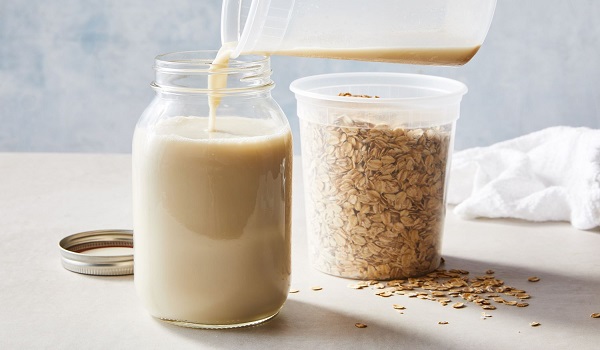From Trendy Darling to Controversial Contender – Exploring Its Rise, Criticisms, and Environmental Impact
In the realm of alternative milks, oat milk once reigned supreme as the darling of the vegan world. Its creamy texture, earth-friendly image, and purported health benefits made it a staple in many households. However, recent scrutiny has cast a shadow over its once untarnished reputation, prompting a deeper exploration of its merits and drawbacks.
The story begins with a viral video that took social media by storm, featuring actor Drea Valls personifying cow’s milk as a scorned lover lamenting oat milk’s betrayal. This comedic take on the rivalry between dairy and oat milk struck a chord, sparking conversations about the latter’s nutritional content and environmental impact.
Enter the “Glucose Goddess,” Jessie Inchauspé, whose damning assessment of oat milk as “starch juice” sent shockwaves through the health community. Suddenly, oat milk found itself under the microscope, with nutritionists questioning its high carbohydrate content and potential for glucose spikes.
As the debate intensified, experts weighed in on both sides. Functional medicine specialist Sarah Carolides highlighted the concerns surrounding oat milk’s fiber, sugar, and additives, warning of potential digestive issues. Meanwhile, representatives from Oatly, the leading oat milk brand, defended their product, citing glycaemic load analysis and touting its low environmental impact.
The environmental angle added another layer to the controversy, with oat milk’s purported eco-friendliness called into question. While it boasted a smaller carbon footprint compared to dairy milk, concerns emerged about industrial farming practices and pesticide usage associated with oat production.
Ethical considerations further complicated the narrative, with discussions revolving around glyphosate use in non-organic farming and the benefits of organic and regenerative dairy farming. Advocates emphasized the importance of holistic assessments, urging consumers to consider factors beyond just nutritional content.
In the end, the oat milk debate serves as a reminder of the complexities inherent in food choices. While viral videos and sensationalized headlines may simplify the issue, the truth lies somewhere in between. As consumers navigate the aisles of their grocery stores, they are encouraged to seek balance, weighing nutritional needs, environmental impact, and ethical considerations in their decision-making process. For in the quest for the perfect milk alternative, perhaps the answer lies not in absolutes, but in finding a compromise that satisfies both body and conscience.


